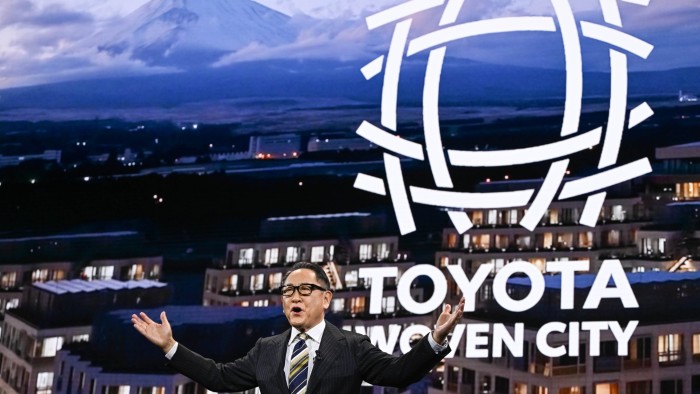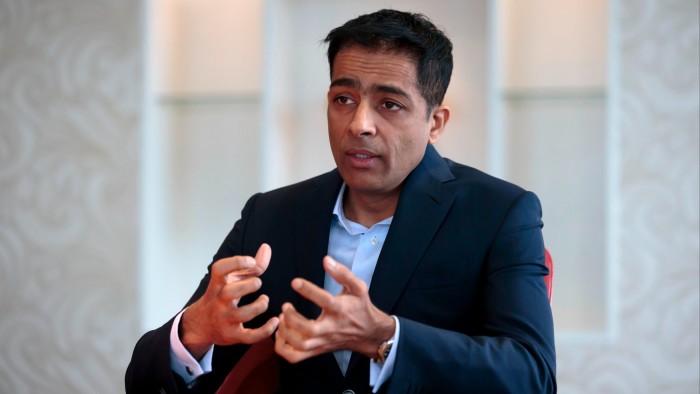
Unlock the Editor’s Digest for free
Roula Khalaf, Editor of the FT, selects her favourite stories in this weekly newsletter.
Shares in a swath of companies surged in Tokyo on Monday after a $42bn plan to take car parts maker Toyota Industries private triggered hopes of a wider overhaul of Japan’s corporate landscape.
Akio Toyoda, grandson of Toyota’s founder, is leading the buyout proposal, according to people close to the discussions, which has prompted shares to soar in numerous other companies linked to the carmaker.
Investors are placing bets on subsidiaries and affiliates that they think might also come under pressure to change their ownership relationship in the coming years. Aichi Steel shares rose 16 per cent, while others including Daihatsu Diesel, Toyoda Gosei and Aisin rose between 1.5 and 6 per cent.
Moves elsewhere in the Tokyo market on Monday reflected speculation that the managements of other big industrial groups would also accelerate discussions over potential acquisitions or buyouts of listed subsidiaries. Shares in Sumitomo Densetsu, which is 50 per cent owned by Sumitomo Electric, soared 9 per cent.
Shares in Toyota Industries eventually surged by their upper limit of 23 per cent, with investor demand for one of the carmaker’s largest listed subsidiaries — which also makes forklifts — so intense that the stock remained untraded on Monday morning under a glut of buy orders.
The massive interest followed confirmation by Toyota Motor, the world’s biggest carmaker, over the weekend that it was exploring participation in a buyout of its Toyota Industries subsidiary, in which it holds a 40 per cent stake and which had a market capitalisation on Friday equivalent to $30bn.
People close to the discussions told the Financial Times on Friday that the move, though still very tentative, was being led by Toyoda, chair of the carmaker that bears the family name.
The proposed take-private, if realised, would command a significant premium over last week’s closing price and be among the world’s biggest ever, said people familiar with the talks.
But investors said on Monday that while the proposal was eye-catching on its own, the potential symbolism was even greater.
Toyota Motor, which maintains a complex network of cross-held shares with its various subsidiaries, has long been viewed as a laggard in streamlining its structure and an outlier from Japan’s decade-long push to hold listed companies to higher governance standards.
A series of recent data scandals at the carmaker’s subsidiaries, including at Toyota Industries, has also increased pressure for reforms.
The Tokyo stock market is strewn with examples of so-called parent-child listings, where major industrial groups maintain significant shareholdings in their listed subsidiaries. The structure has evolved to protect companies from takeover, but it has long been criticised by investors for allowing management complacency and creating major conflicts of interest.
Toyota’s move would be interpreted as a concession to shareholder demands and a sign that even the most stubborn companies must now change, investors added.
The proposed deal “would signal the biggest reorganisation of the Toyota group to date”, said Kazunori Maki, an analyst with SMBC Nikko.
However, while analysts acknowledged that the buyout would, on the surface, ease governance concerns by reducing the web of cross-shareholdings — something Toyota has been accelerating in recent years — it could also solidify family control of the group.
“The real reason is likely to get Toyoda-san back into a significant control position in Toyota Motor for the next few generations,” said Travis Lundy, an independent analyst.






